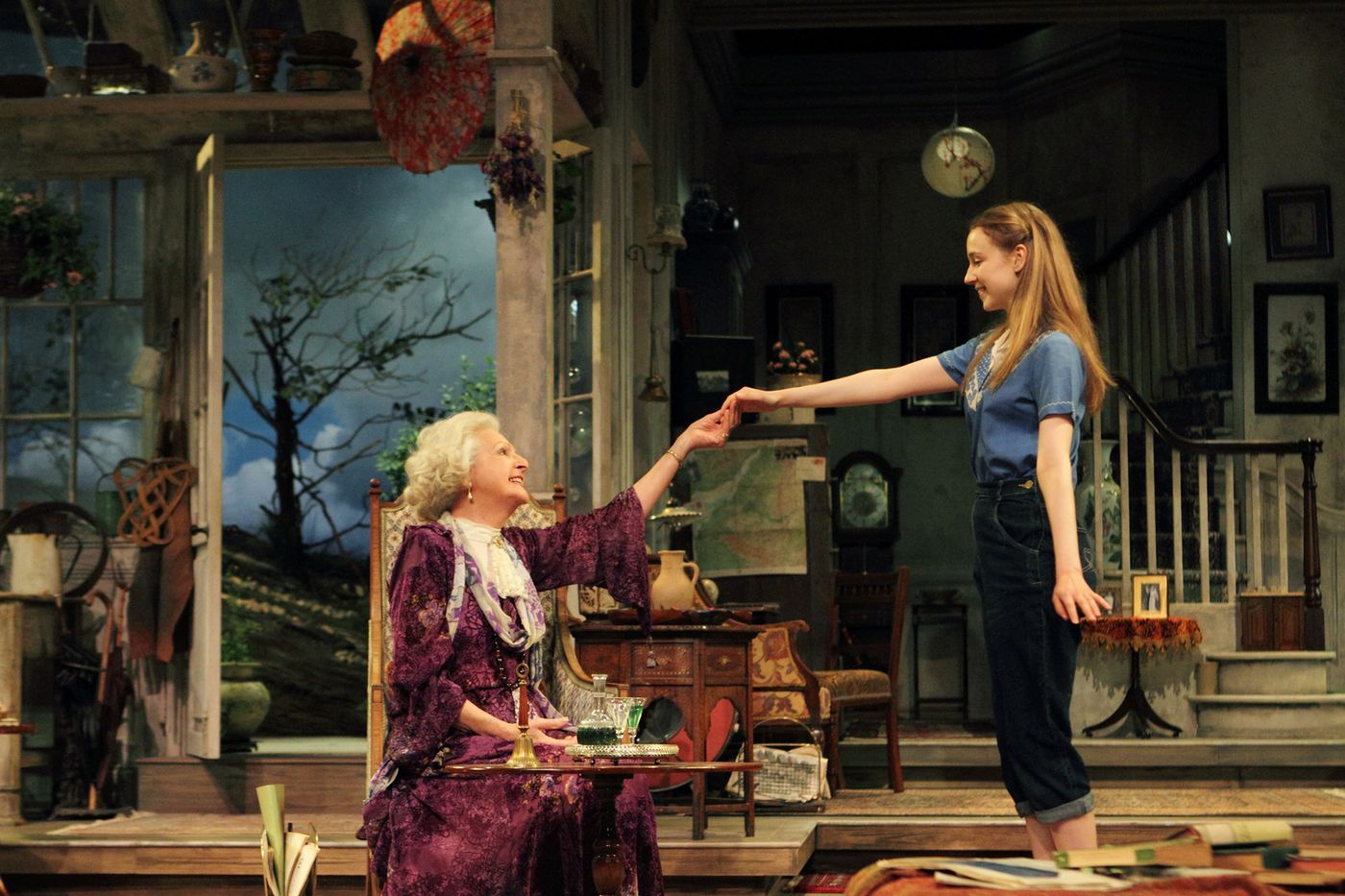Review: THE CHALK GARDEN, Chichester Festival Theatre

![]() The Chalk Garden takes place in the summer of 1955 in the garden room of Mrs St Maugham's house in a seaside village in Sussex. It was written by Enid Bagnold (author of National Velvet) while she was living in Rottingdean.
The Chalk Garden takes place in the summer of 1955 in the garden room of Mrs St Maugham's house in a seaside village in Sussex. It was written by Enid Bagnold (author of National Velvet) while she was living in Rottingdean.
The play premiered on Broadway in 1955 and was adapted for film in 1964. Bagnold's local affiliation makes it apt that it has been revived as part of Chichester Festival Theatre's 2018 season.
Mrs St Maugham (Dame Penelope Keith) spends much of her time caring for her challenging granddaughter, Laurel (Emma Curtis), and maintaining her garden. The coastal climate makes gardening challenging for her due to the chalky nature of the soil.
She enlists the help of a governess to care for Laurel. Her vague newspaper advertisement attracts a random selection of candidates across the region for the position.
The play opens with Mrs St Maugham interviewing a number of candidates, settling on the mysterious Miss Madrigal (Amanda Root). Miss Madrigal is very knowledgeable about gardening but is less forthcoming about her previous occupation, which comes to light during a visit from a judge (Oliver Ford Davies).
Keith is marvellously eccentric as Mrs St Maugham and plays the controlling grandmother very well. Root's Miss Madrigal has a stern calmness about her, careful not to give too much away about her past. Ford Davies brings a friendly warmth to the judge, who simply wants to enjoy the presence of those in the room than talk about his work overseeing murder trials.
Curtis plays Laurel with a cheeky innocence, whose rebellion only seems to consist of a couple of lies, some extreme statements during a tantrum and enjoying lighting pre-prepared bonfires in the garden. Hardly a "disturbed" child - as the audience is told before her entrance - by modern standards.
Matthew Cottle is Maitland, an overworked manservant in the absence of the terminally ill butler. He plays him with a humorous exasperated energy, as he tries to meet the many demands of the household by himself. Laurel's estranged mother (Caroline Hacker) also features as she visits from abroad to take Laurel to live with her.
Simon Higlett's set comprises of an expansive living room, cluttered with books and plant pots, looking out on the garden. It feels like there are slightly too many chairs on the stage, but this may well be the case in large country homes of its kind. His stylish costumes match the grandeur of the home and the personalities wearing them, while Miss Madrigal contrasts in simple blouses and skirts.
Natasha Chivers' lighting design floods the room with sunshine and elegantly mimics sunrise and sunset. Catherine Jayes' string music beautifully frames each scene.
Alan Strachan's direction ensures every possible laugh has been milked from the script; however, for a play described as a drama, the overall mood of the piece isn't particularly tense.
The writing is mainly at fault here: the big "climax" is relatively tame, and the ending seems at odds with how relationships are characterised earlier in the play.
While overall The Chalk Garden feels like a fly-on-the-wall experience peeking into in any grand house in Sussex, the series of events feels unconnected, at times uninteresting and rather unsatisfying as a whole.
The Chalk Garden at Chichester Festival Theatre until 16 June
Photo Credit: Chichester Festival Theatre
Reader Reviews
Videos
